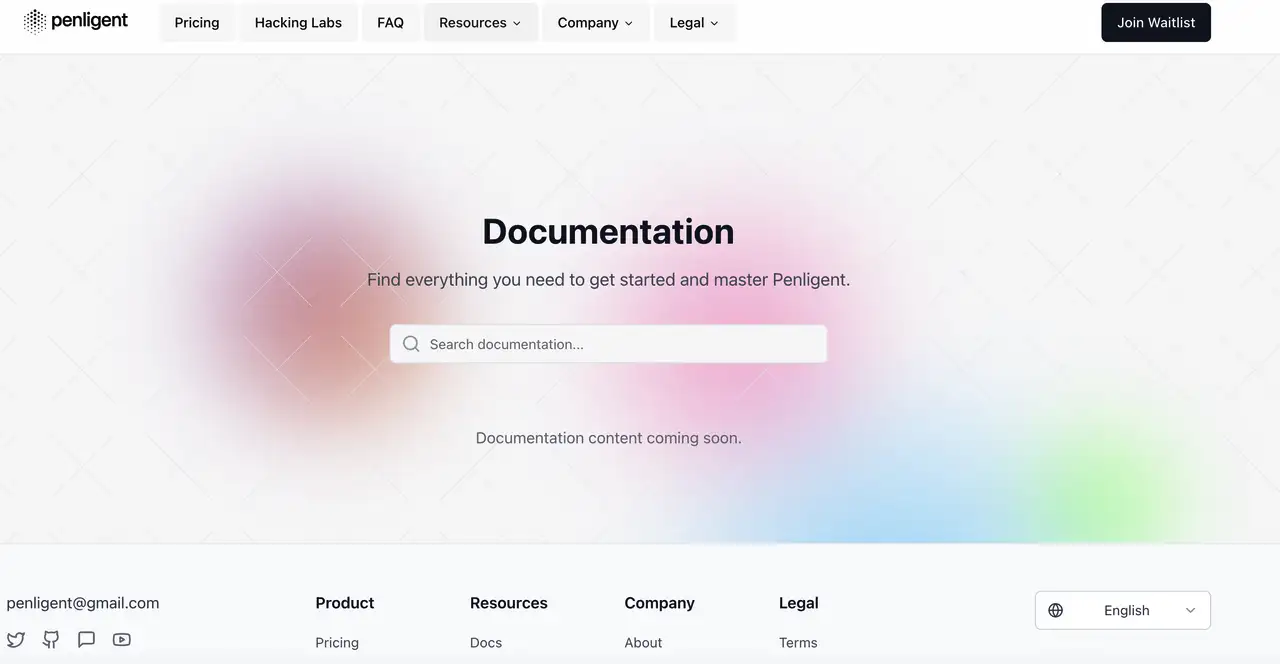🍔 McDonald’s AI Hiring Assistant “Olivia” Exposed ~64 Million Applicants — How AI Pentesting Could Have Prevented It

PenligentAI · 29, July 2025
While testing McDonald’s AI recruiting chatbot “Olivia,” security experts Ian Carroll and Sam Curry needed less than half an hour to gain almost unrestricted access — using the laughably common password “123456” — to approximately 64 million job applicants’ records, including names, email addresses, phone numbers, and chat logs with the AI McDonald’s AI Hiring Bot Exposed Millions of Applicants’ Data to Hackers Who Tried the Password ‘123456’.

🔓 What Happened — Step-by-Step
- Recon & Prompt Testing
Carroll and Curry began by interacting with Olivia to detect AI prompt-injection vulnerabilities — none were found.
- Weak Admin Login
They discovered a hidden “Paradox.ai internal staff” login on McHire.com. After trying common credentials like
admin/admin, they hit gold with123456:123456, gaining admin access — with no multi-factor authentication in place.
- IDOR Blast Radius
Once inside, by simply decrementing
lead_idvalues in an insecure API, they accessed chat histories and PII for applicants dating back years — totaling around 64 million records.
- Partial Exposure, Full Risk
They viewed seven records (five with full PII) before stopping, but the platform still held data on ~64 million people .
- Patch & Response
Paradox.ai disabled the account and fixed the API on the same day (June 30), launching a bug bounty program. McDonald’s attributed the issue to its vendor and reiterated its commitment to cybersecurity.

🧠 Why AI Systems Don’t Automatically Mean Secure Systems
- Shiny AI interfaces don’t protect against basic security flaws. Weak passwords, no MFA, and exposed APIs are as dangerous now as ever Agentic AI's Risky MCP Backbone Opens Brand-New Attack Vectors.
- Most breaches aren’t fancy exploits. They’re caused by overlooked default logins and missing access checks .
🤖 How AI Pentesting Tools Could Have Averted This
By integrating AI-powered pentesting into the platform’s design and deployment, Paradox.ai (or McDonald’s cybersecurity team) could have prevented this at-scale breach:
1. Semantic Code Scanning
- Penligent can statically analyze code for hard-coded credentials, default passwords, and insecure endpoints—flagging even non-obvious backdoors.
2. Automated Login Testing
- Tools like Nebula and PentestGPT can auto‑test endpoints with lists of weak passwords (like “123456”) and identify missing MFA or SSO protections.
3. API Enumeration & IDOR Detection
- RapidPen can fuzz internal APIs for insecure direct object references (IDOR) and simulate parameter manipulation attacks.
4. AI‑Driven Adversarial Testing
- Mindgard or Robust Intelligence can craft inputs to probe backend logic and AI interactions for hidden weaknesses.
5. Auto‑Report Generation
- PentestGPT assists by creating evidence-backed reports complete with payloads, screenshots, and recommended remediations.
🛠 Putting It All Together: A Sample Defense Workflow
| Phase | AI‑Pentest Role | Purpose |
|---|---|---|
| 🕵️♂️ Code Review | Penligent | Detect default credentials & insecure config |
| 🔐 Login Attack Simulation | Nebula/PentestGPT | Test admin endpoints for weak access control |
| 🔍 API Fuzzing | RapidPen | Find IDORs and enumeration vulnerabilities |
| 🎭 Adversarial Testing | Mindgard/Robust Intelligence | Simulate AI-level misuse via crafted inputs |
| 📄 Reporting | PentestGPT | Compile detailed audit with fixes and evidence |
💡 Final Takeaways
- Strong credentials + MFA are non-negotiable, even for internal or legacy accounts.
- AI doesn’t safeguard you from fundamental flaws like IDORs.
- AI pentesting tools offer fast, scalable, and thorough defenses across code, endpoint, AI, and API layers.
- A defense-in-depth strategy—with layers of AI-powered review, testing, and reporting—is essential before deploying AI systems that handle real PII.
🛡️ Recommended AI Pentesting Toolkit
- penligent.ai – semantic analysis to flag hidden credentials or logic flaws
- PentestGPT – generates scripts, payloads, reports for comprehensive audits

McDonald’s “Olivia” incident proves that even “dystopian” AI hiring systems are just as vulnerable to elementary security mistakes. Instead of glorifying automation, organizations must imbue it with rigorous AI‑powered penetration testing. Tools like Penligent, Nebula, RapidPen, Mindgard, and PentestGPT form a proactive frontline—helping ensure that the next AI‑powered platform doesn’t become the next massive leak.
Want to dive deeper into any of these tools or explore how to tailor this workflow for your platform? I’d be happy to help.